As a Republican holdout on the “big, beautiful” budget bill, as President Donald Trump calls it, Sen. Ron Johnson thinks he has a fairly simple request for the 10-year budget plan: Go back to the drawing board and cut spending down to pre-COVID-19 pandemic levels.
“That pretty well sums it up in one chart,” said Johnson, R-Wis., in his office Tuesday, passing a historical timeline of deficit levels across his desk.
Johnson, a fiscal hawk who was first elected senator during the fiscally conservative Tea Party wave of 2010, would like to see Republicans hit the brakes on the current bill and slash federal programs.
The chart goes from the $200 billion deficit levels of the early 2000s to the $2.6 trillion deficits projected by the Congressional Budget Office for the mid 2030s if the House of Representatives’ big, beautiful bill were to pass as is.
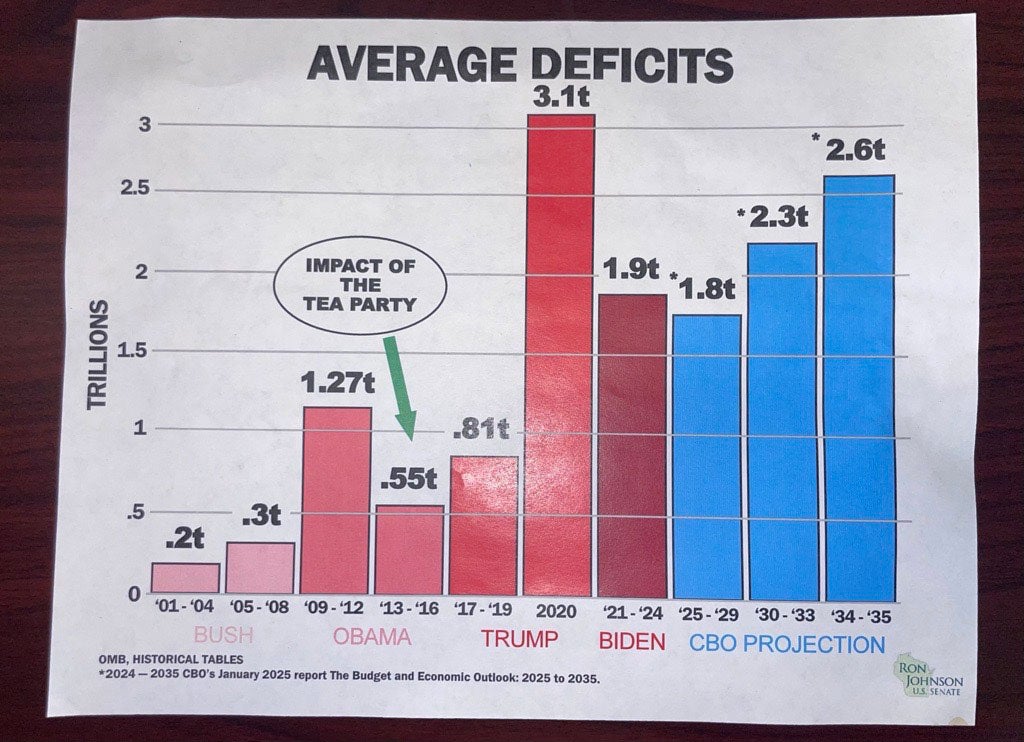 (George Caldwell/The Daily Signal)
(George Caldwell/The Daily Signal)Johnson says these budgetary deficits could have catastrophic effects, as signaled by shaky bond markets he thinks are reacting to runaway spending and excessive borrowing.
“The bond markets are indicating things: Moody’s, the last credit rating agency to downgrade our credit rating. These are all signs,” he said.
“They’re not good signs. Global investors—one of the reasons interest rates are moving up is they’re not plowing their money into the U.S. bond as a safe haven. They’re buying gold. Just look at what the market is telling us. The market doesn’t lie.”
What Will Trump Say?
Johnson’s current opposition to the bill may put him in an awkward position with Trump—who has called for its speedy passage—but he says he’s hopeful Trump can be won over. Johnson is a longtime ally of the president.
He was reportedly phoned into a conversation between Trump and Senate Majority Leader John Thune, R-S.D., on Monday.
“I’m more than willing to work with the president. Based on our conversation, it sounds like he’s more than willing to work with me and others that have serious reservations. He wants to bend that [deficit] down,” the Wisconsin lawmaker said, adding:
At the State of the Union, [Trump] said he wanted to balance the budget. Well, we’re a long way from balancing the budget.
Johnson’s Counterproposal
Johnson’s proposal is to split the bill in two. One bill would “get what we need to get done quickly”; namely, raising the debt ceiling for a year to avoid a default on the national debt, extending Trump’s first-term 2017 tax cuts before their expiration, and banking the easiest savings.
The second part, Johnson said, would be a DOGE-inspired “forensic analysis” of the federal budget, in which “you can probably eliminate hundreds of billions of dollars of spending that nobody would even notice, other than the grifters who are sucking down the waste, fraud, and abuse.”
“Did you realize there’s 2,600 programs in the federal government?” he said. “I bet you could eliminate half of them, and you would be none the wiser.”
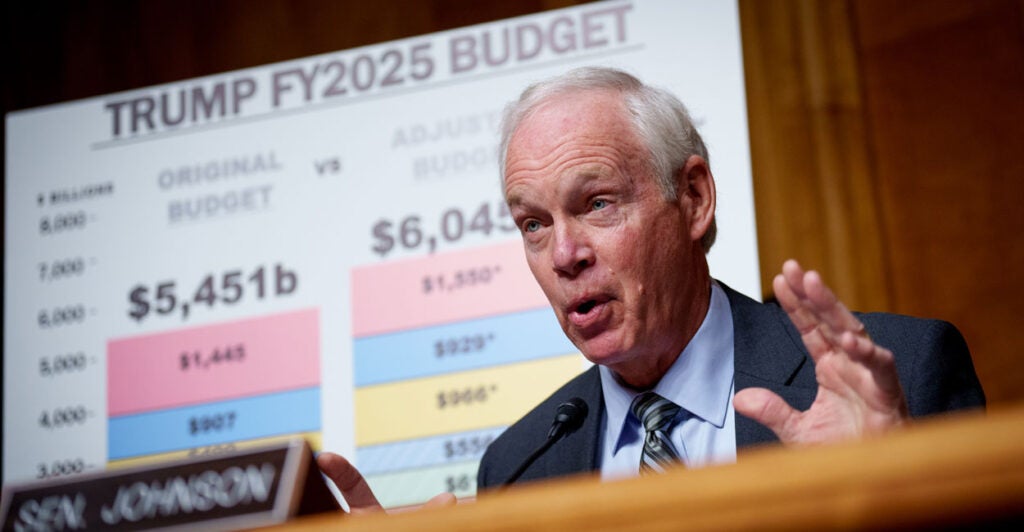 Sen. Ron Johnson, R-Wis., proposes a DOGE-inspired “forensic analysis” to massively reduce spending. (Andrew Harnik/Getty Images)
Sen. Ron Johnson, R-Wis., proposes a DOGE-inspired “forensic analysis” to massively reduce spending. (Andrew Harnik/Getty Images)He dismissed the idea that these cuts would clash with the Senate’s Byrd Rule, which forbids provisions that are not primarily budgetary.
“The things I’m talking about all have budgetary impacts. I mean, you just cut a program up,” he said.
Johnson told The Daily Signal that he’s not alone in his wish to dramatically alter the 10-year spending plan.
There are “four people that unless significant changes are made, we’ll not support it,” he said, adding:
I think there’s a much larger number of people who get this, want to do something about it, are probably a whole lot quieter than those of us who are speaking out about this.
As a member of the Senate Budget Committee, Johnson is in a position to potentially stall the bill if he so wishes.
“My primary effort right now is just to force people to look at the numbers, to make them look at the facts and acknowledge them,” he said, when asked whether he would attempt to use that position as leverage.
Will Johnson Fold Under Pressure?
The situation is sure to get more stressful for Johnson the closer the Senate gets to its preferred deadline for passage of the bill of Independence Day, July 4.
Asked what he would do if Republican leadership dared him to vote against a bill that would extend Trump’s tax cuts and prevent a potential default on the national debt, Johnson suggested he wouldn’t blink.
“I recommend they don’t dare me,” he replied. “Work with me, and let’s do something that can pass, something that I can support.”
A likely reason the entire budget process has been packed into one big, beautiful bill as opposed to two or three is to increase the pressure on members to vote for it.
If controversial provisions are included with others that are almost universally considered necessary by Republicans—such as raising the debt ceiling—then holdouts are less likely to vote against the bill.
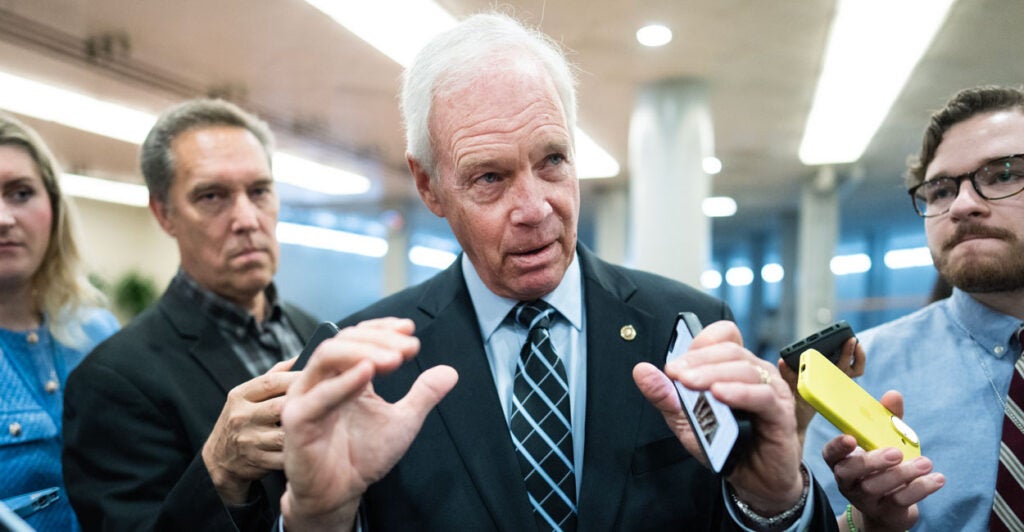 Sen. Ron Johnson, R-Wis. (Tom Williams/CQ-Roll Call via Getty Images)
Sen. Ron Johnson, R-Wis. (Tom Williams/CQ-Roll Call via Getty Images)Johnson says that won’t work on him.
“That has succeeded in the past. It still might succeed; it’s hard to say. I mean, I know why they bundled it all up,” he said.
“It’s like, ‘Oh, you’re going to really vote against it? You’re going to vote to, in effect, default on the debt? You’re going to vote to actually increase people’s taxes?’”
“I understand the pressure coming our way, but this is what I can’t vote for. I can’t accept this without doing something about it,” he said, pointing at the deficit chart again.
“We can’t acquiesce to this. I mean, what we’re doing here, it’s wrong. It’s immoral. The transfer of wealth from young to old is literally immoral. It’s got to stop.”
The post Ron Johnson on ‘Big, Beautiful Bill’ Spending: ‘It’s Immoral’ appeared first on The Daily Signal.
.png)

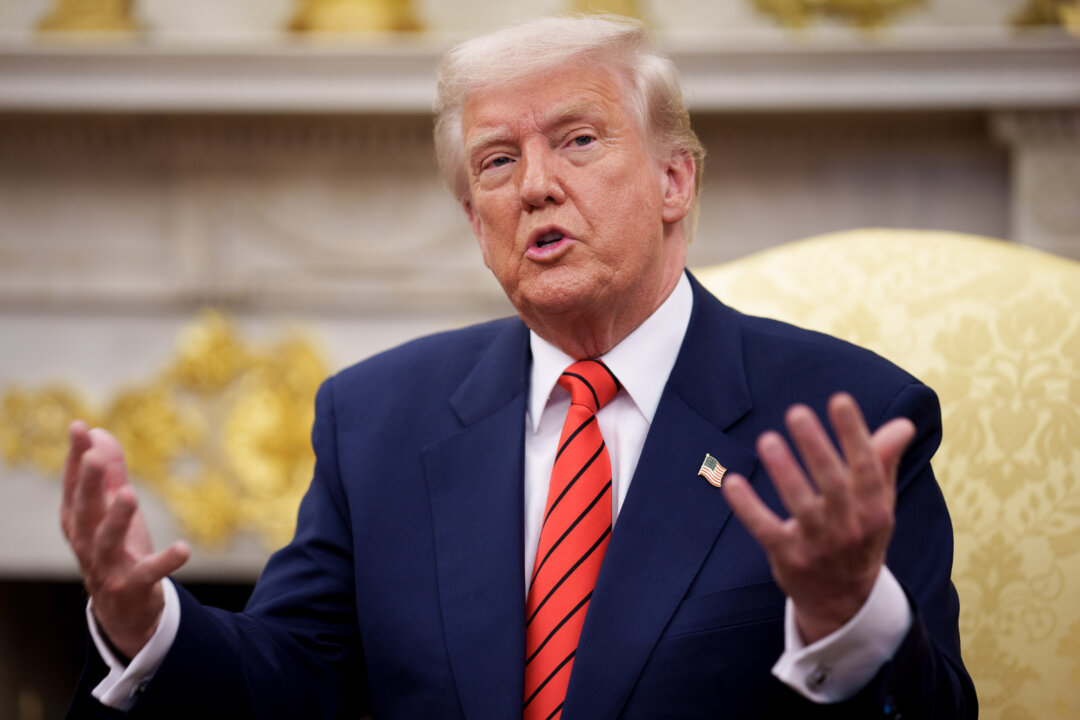








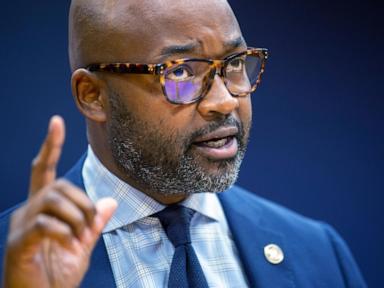



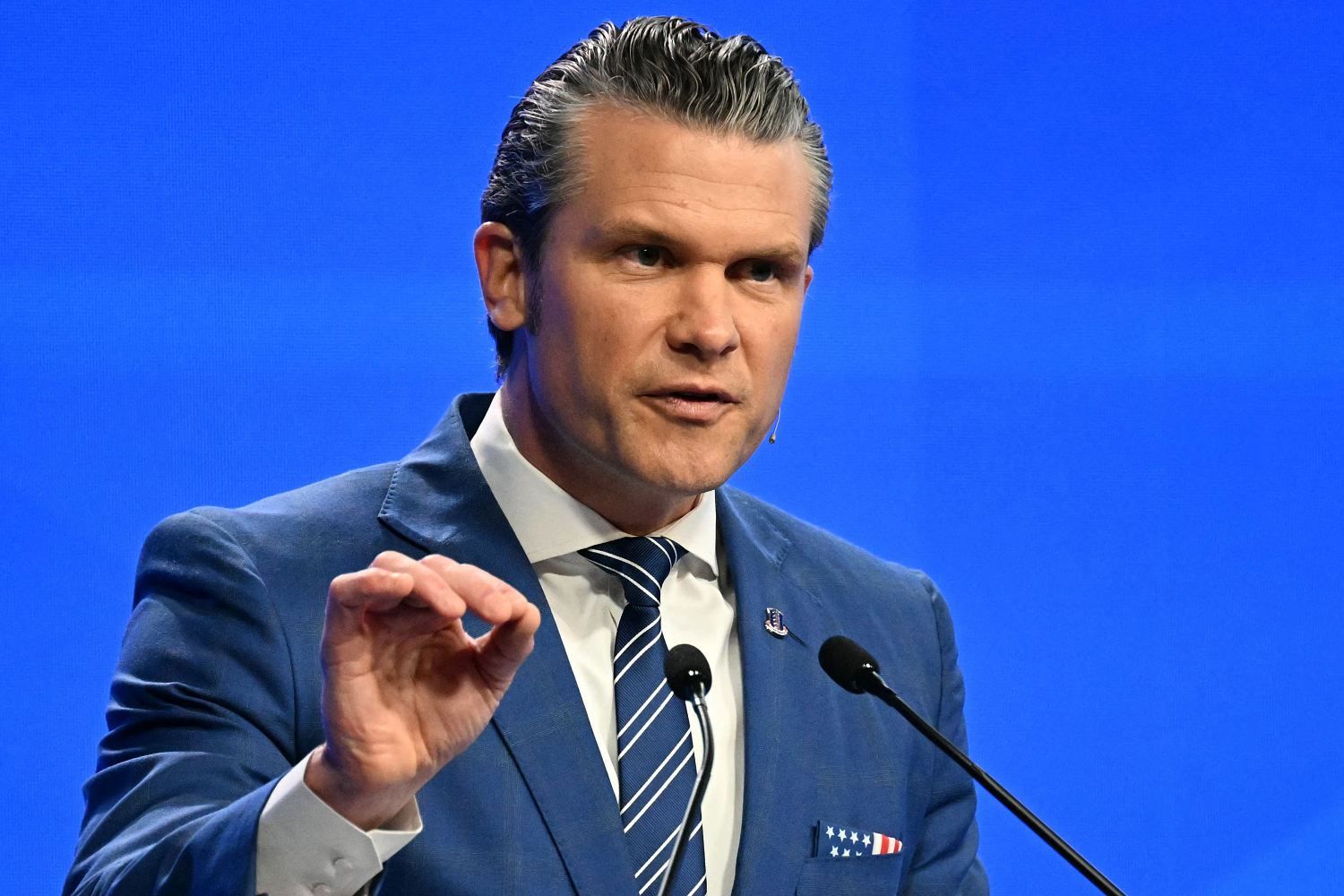
 English (US)
English (US)